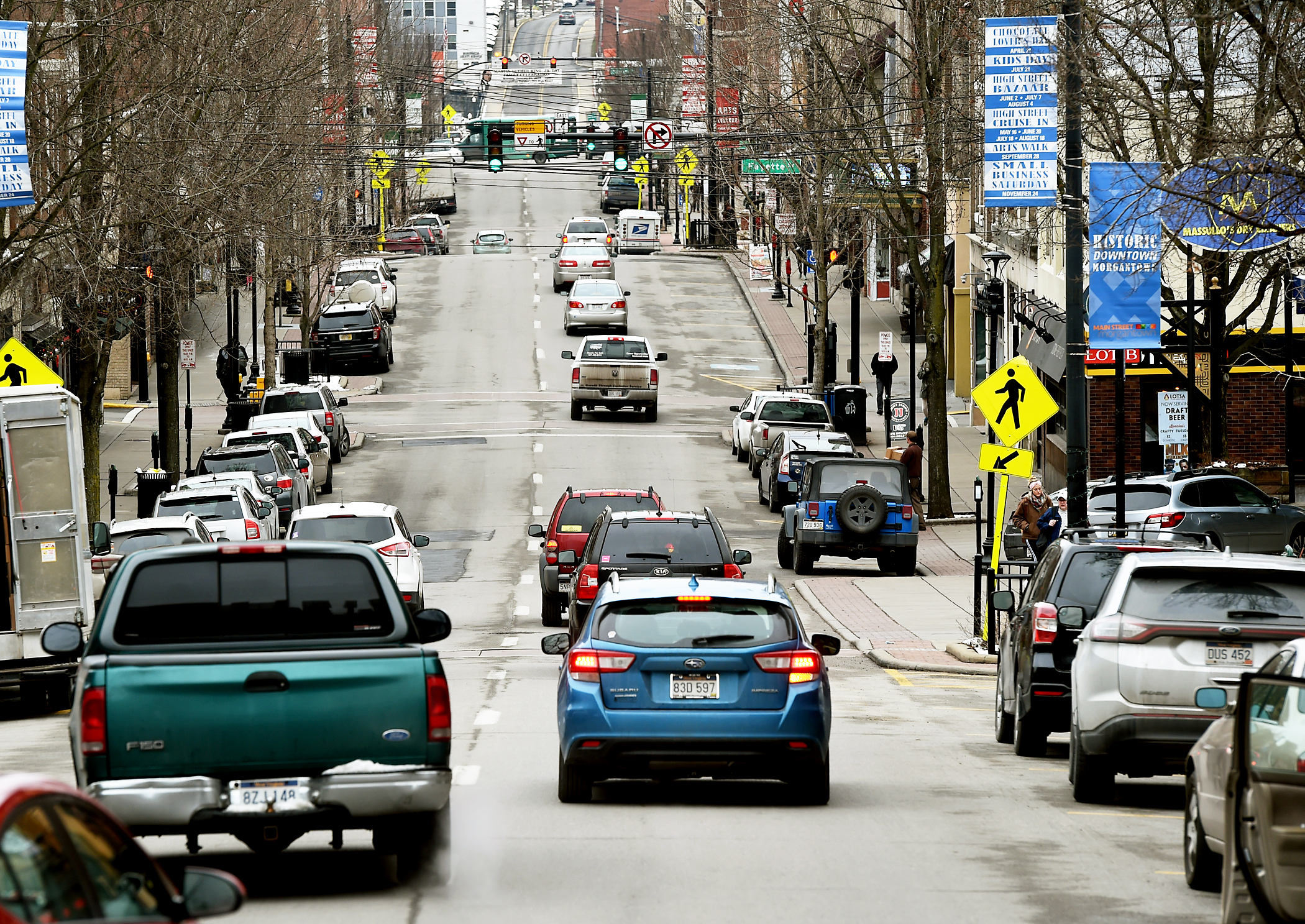Morgantown City Manager Paul Brake rolled out a 9- to 12-month “systematic process” through which the city can collect information and, ultimately, present findings and recommendations in dealing with some of the issues facing the city’s downtown business district.
That process will begin during the Dec. 17 Council meeting, at which time Brake is expected to recommend the hiring of a facilitator to head up the effort.
“This is not meant as a final recommendation, but rather, this is how we can go about collecting information,” Brake said of the plan, which focuses on a “four-pillar” approach comprised of community engagement, current assessment, coordinated response and sustainable solutions.
“It’s a very complex problem and it’s not anything that can be simplified as addressing homelessness. There are other dynamic issues that go along with it,” Brake said.
In public comments to both Morgantown City Council and the Monongalia County Commission, downtown business owners have said they’re facing an epidemic of homelessness, loitering, substance abuse and criminal and otherwise unwanted behavior downtown.
The city’s timeline comes on the heels of, and in contrast to, a plan pulled together days after the business owners addressed the county that aims to get as many people as possible into housing and under the case management of the West Virginia Coalition to End Homelessness in the coming weeks.
A group of some 50 stakeholders — including three members of City Council — were among those who met late last week to begin that effort.
Councilor Ron Dulaney attended that meeting.
“So it looks like we’re talking about nine to 12 months before we know what we’re going to do. Is that it?” Dulaney asked.
Brake bristled at the question.
“No,” he said. “As I mentioned before, if there’s things we can implement now, we’ll implement now. The larger systematic changes … for instance, if we determine that a detox facility needs to be included, that just does not happen instantaneously. There’s a lot of coordination that needs to come with that, and that could be a recommendation through this process.”
Brake said the facilitator is necessary as city administration has limited expertise in handling these types of issues and limited time with which to do it.
Further, he explained, the facilitator isn’t coming in to dictate to social service agencies or law enforcement, but to work with them and other stakeholders on a sustainable plan going forward.
“We currently do not have the expertise at the administrative level to manage social service types of challenges, and so the goal would be for that person to begin pulling together teams to provide the information that we need so that we can figure out what a city response would look like,” Deputy Mayor Rachel Fetty said.
Mayor Bill Kawecki reiterated that this is just the beginning of the process.
“This is framework. This is just structure,” Kawecki said. “We were asked to come up with a way of approaching it and I think what we’ve done here is make a very good beginning.”
TWEET @DominionPostWV




